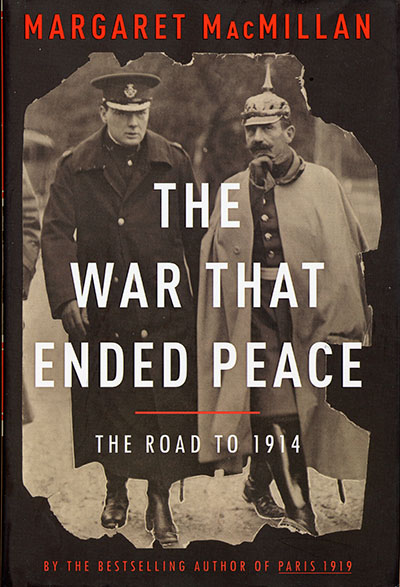
The Lion’s Gate
On the Front Lines of the Six Day War
by Steven Pressfield (Penguin, $29.95).
Brief narratives set up some phases of the recounted conflict, but unfolding events are described almost entirely in participants’ own words, rendered from over 300 hours of the author’s interviews and Moshe Dayan’s diary. Calling the book “hybrid history,” Pressfield makes no apologies either for the liberties he has taken in interpreting first-person accounts or for his partiality, but the result allows the reader to live the war in the moment, albeit from the Israeli perspective: “I wanted to tell the subjective story, the on-the-ground and in-the-air saga, in a way I have not seen it told before.”
A Sense of the Enemy
The High-Stakes History of Reading Your Rival’s Mind,
by Zachary Shore (Oxford, $29.95).
Shore, a professor at the U.S. Naval Postgraduate School, adds research in psychology and cognition to his historical study of key 20th-century statesmen—Gandhi, Stalin, Le Duan, and others. He examines how they succeeded or failed to see into the minds of their enemies at pivotal points of conflict, a skill he calls “strategic empathy.”
The War That Ended Peace
The Road to 1914
by Margaret MacMillan (Random House, $35)
The importance of this book lies less in the new ground it breaks than in the ease with which MacMillan tells a very complex story. Rather than blaming individuals or countries for the war, she argues that war in 1914 was inevitable, even if few people actively sought it. Though Europe had avoided war during earlier crises, MacMillan suggests this was more the result of luck than careful leadership. Readers interested in the lives and decisions of the ruling elites will find this book rewarding, and those who enjoyed Guns of August will find here an updated retelling of that story.
Verdun
The Longest Battle of the Great War
by Paul Jankowski (Oxford University, $34.95)
Jankowski probes the iconic 10-month battle from every angle—tactical, strategic, human, and political—and arrives at new and unexpected insights into its ultimate meaning and aftermath, for both Germany and France.
Forgotten Fifteenth
The Daring Airmen Who Crippled Hitler’s War Machine
by Barrett Tillman (Regnery, $29.95)
Tillman, an experienced pilot and historian, provides the first detailed account of the heroics of the Fifteenth Air Force. During a four-month campaign in 1944, its flyers took on, and took out, some of the Nazis’ most prized and ferociously protected possessions: their critical oil refineries in the Balkans. The cost was high—240 aircraft and their crews lost—but the Fifteenth went on to strike other strategic targets across Europe.
The Trigger
Taking the Journey That Led the World to War
by Tim Butcher (Grove, $25)
Part history, part travel narrative, this follows in the footsteps of Gavrilo Princip, the 19-year-old radical from the remote western Balkans whose opportune shot at Archduke Franz Ferdinand changed history.

.jpg)



